Stephen Toumajan spent most of his professional life as an officer in the US Army — but these days the country he serves is not the US but the United Arab Emirates. He is a major general for the Emirati military, according to his own statements and a UAE government website.
He commands the UAE’s military helicopter branch at a time when that country’s forces are fighting one of the world’s deadliest conflicts: the brutal war in Yemen, which has left over a million people with cholera, 8 million people at risk of starvation, and 5,000 children dead or wounded. The UAE and its partners in the war have been accused of atrocities. Toumajan says he is not involved in that war.
To be a UAE general is a step up for Toumajan, who left the US Army as a lieutenant colonel and once had a side gig running a women’s bust–enhancement business in Tennessee called Breast Wishes.
More importantly, it represents a marked escalation of the role US private military contractors play in foreign conflicts. While military contractors have become deeply entwined in warfare all over the world, they traditionally have stuck to strict limits: advising, training, and supplying foreign armies — but not actually serving in them. It’s the distinction between being a contractor and a mercenary. Toumajan’s role blurs that distinction.
Got a tip? You can email tips@buzzfeed.com. To learn how to reach us securely, go to tips.buzzfeed.com.
A UAE government website proclaims that “His Excellency Major General Staff Pilot Stephen A. Toumajan” is “Commander” of the UAE’s Joint Aviation Command, which, according to experts on the UAE’s military, operates most of the nation’s combat helicopters. The website says he is responsible for training, combat readiness, and “execution of all aviation missions.”
“I’m the commanding general for the Joint Aviation Command in UAE,” he says in a video on a US Defense Department website. “The UAE is a very small country,” he continues. “We” — meaning the UAE — “don’t have the landmass that you” — the Americans — “have for these types of training events, so we certainly appreciate the hospitality that you’ve shown the United Arab Emirates and to my soldiers.”
His business cards also proclaim he is a UAE general. Reached by cell phone in Abu Dhabi, he answers in an authoritative voice: “General Steve.”
“I'm a major general for the United Arab Emirates.”
Yet he also insists he is not actually in the UAE military. “I'm a major general for the United Arab Emirates,” he testified in a child custody hearing in Florida. “I hold the duty, rank, the responsibilities of a major general.” But in the very next breath, he stated, “I’m not currently in their armed forces.”
In WhatsApp messages to BuzzFeed News, Toumajan, who retired from the US Army in 2007 after 20 years of service, said: “Stephen A. Toumajan has not sworn allegiance to the UAE nor is he in the UAE military.” He added, in a slightly ungrammatical message, “Stephen A. Toumajan is a civilian contractor whom has the trust and confidence of the Deputy Supreme Commander whom asked him to form the UAE Joint Aviation Command.” He said the forces fighting in Yemen are not under his command, and that his activities are authorized by the US government.
The US Army says it is currently reviewing Toumajan’s situation. The State Department said the law bars it from discussing specific cases, though it says it has never authorized any contractor to provide “direct command functions” to a foreign army.
“I was an officer in the US Army,” said Sean McFate, a fellow at the Atlantic Council who has written a book about private military contractors. “And the first thing you learn as a cadet is you are responsible for everything your unit does or fails to do, and that is the military ethos worldwide. If his unit ends up firing on innocents, from a military ethos standpoint, that blood is on him.”
But in such a case, who would investigate or discipline him? Would it be military courts under the US Uniform Code of Military Justice, the UAE’s judicial system, or some other kind of court? “If an airstrike by the US goes bad, there is a clear set of procedures that comes next,” said Peter Singer, a strategist for New America, a nonprofit think tank. “It’s not always perfect but there are results, and in some cases there are court martials.” For Toumajan, he said, “What is the process here? For this individual?”
"There is kind of a ‘genie is out of the bottle’ with this.”
For its war in Yemen, the UAE participates in a “Joint Incidents Assessments Team” run out of Saudi Arabia that has often cleared the coalition of wrongdoing in airstrikes. Human Rights Watch said the coalition has an “unwillingness to conduct serious investigations into alleged violations of the laws of war.”
Another issue is precedent. If other Americans follow his lead — and there are surprisingly few laws to stop them — then former US officers could command foreign troops in ways that could harm US interests or lead to war crimes. “There is kind of a ‘genie is out of the bottle’ with this,” said McFate. “Let’s say his intentions are good,” he said of Toumajan. “Let’s say we have another lieutenant colonel who doesn’t share his responsible views, who can work for China. The precedent is now set.”
Businesspeople and retired officers familiar with Toumajan’s position say that the US government appears to have turned a blind eye to his actions. A top executive at a company tasked with making sure Toumajan complied with US regulations said he resigned because Toumajan would not grant access needed to ensure he and the Joint Aviation Command were in compliance.
Meanwhile, the 53-year-old Toumajan has been photographed wearing a flight suit with an Emirati flag on his shoulder and what appears to be the insignia of a UAE general on his epaulets. He told BuzzFeed News that he “does not wear a UAE military uniform” but “does wear the rank insignia for Good order and discipline for the unit.”
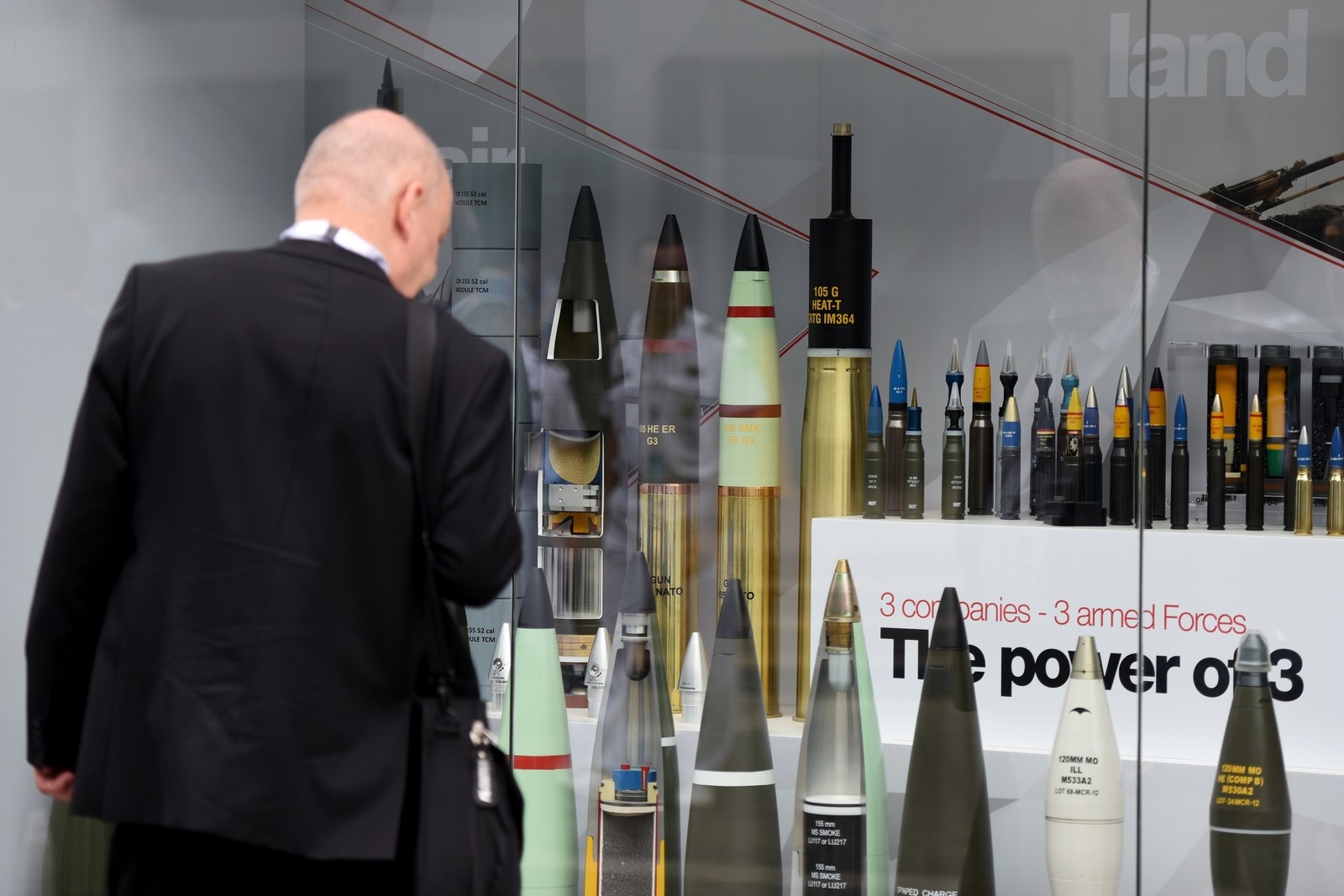
$27 billion in arms sales
The UAE, a federation of seven tiny desert monarchies, has become a lucrative honeypot for US military contractors. The country has only 1 million Emirati citizens but relies on 9 million expatriates, most of whom live there temporarily, to do everything from build the skyscrapers in the capital Abu Dhabi to training and equipping the country’s military. The US Department of Defense has approved at least $27 billion in arms sales and defense services since 2009. Toumajan claimed to BuzzFeed News that he himself was “instrumental in the modernization of the UAE fleet with investing over $10 billion in American aircraft and services.”
Over the last 10 years, a parade of former top US military officers have offered their skills and prestige for sale to the UAE.
Over the last 10 years, a parade of former top US military officers have offered their skills and prestige for sale to the country. Abu Dhabi was the grazing patch for Erik Prince, the scandal-tarnished founder of Blackwater, who helped the UAE set up an army of Colombian mercenaries. (Prince’s entanglements with the UAE have recently attracted the attention of federal investigators, because after Donald Trump was elected president, Prince met the Emirati royal family in the Seychelles, where he also met a Russian banker in an alleged scheme to set up a back channel between the Trump team and the Kremlin.) Through his spokesperson, Prince declined to comment.
Retired US vice admiral Robert Harward, a former SEAL who declined Trump’s offer to be national security adviser after Gen. Michael Flynn was fired, runs the UAE operations of the defense contracting giant Lockheed Martin. Through a spokesperson, he declined to comment.
Former general Stanley McChrystal, the one-time commander of US forces in Afghanistan, who was forced from his command after a blistering profile in Rolling Stone, was on the strategic advisory board of Knowledge International; that company, according to one of its executives and other sources, was hired to oversee Toumajan. Also on the board was the former commandant of the US Marine Corps, Gen. James Conway, and the former commander of Special Operations Command, Gen. Doug Brown. An aide to McChrystal said he was no longer on the advisory board. Conway declined to comment. Brown, who noted that the UAE is a US ally, told BuzzFeed News he still is on the company advisory board. He said he does not know how Toumajan could work as a major general for a foreign army, adding, “I think I’ll stay out of this one.”
Even James Mattis, after he retired as a Marine Corps general, acted as an unpaid adviser to the UAE before he was appointed as Trump’s secretary of defense. A spokesperson for Mattis did not respond to emails.
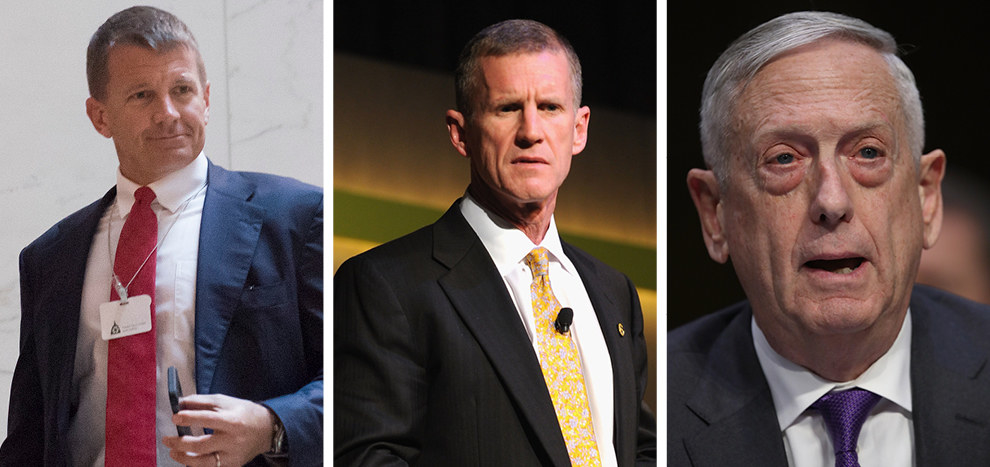
But Toumajan stands out: He appears to be the only former US officer who says he is a general for the UAE’s armed forces.
A spokesperson for the UAE’s embassy in Washington did not respond to written questions. An executive from Harbour Group, which does public relations for the UAE, referred calls back to the embassy.
Three sources who know Toumajan well say he started in Abu Dhabi shortly after leaving the US Army and quickly charmed Crown Prince Mohammed bin Zayed, widely seen as the most powerful person in the country. For several years, as it ramped up its military, the UAE dabbled in aggressive operations, supporting Sunni rebels in Syria to fight against al-Assad, for example, and sending arms to the Libyan warlord Khalifa Haftar as he fought the government of Tripoli.
But not until the Yemen conflict started in 2015 did the UAE get down to prolonged and sustained war. It joined in the leadership of a coalition of Arab and North African nations to fight Houthi rebels who are backed by Iran. The coalition has used brutal tactics, including what critics say are indiscriminate and disproportionate bombings and blockades that prevent food and assistance from reaching desperate civilians.
Tournajan founded and now leads the UAE’s Joint Aviation Command, which experts and published reports say controls the acquisition, deployment, and operation of the majority of the UAE’s combat helicopters.
“Basically they’ve got foreign mercenaries fighting the war — or commanding the war, I should say.”
The International Institute for Strategic Studies, a British think tank, has reported that the JAC’s arsenal includes well-known US military helicopters such as the Apache, Chinook, and Black Hawk, which it says are currently deployed in Yemen.
Toumajan, in an email to BuzzFeed News, said that in Yemen, the UAE’s forces “are under a completely separate and distinct commands structure not under the Joint Aviation Command.” He did not answer questions about whether Joint Aviation Command helicopters have been deployed to Yemen.
The UAE military has also hired a retired Australian general, Mike Hindmarsh. He commands the Presidential Guard, which defends the royal family and conducts special operations. Sources with knowledge of the UAE military say both of these men are key to the way the country is fighting its war in Yemen. The Australian Department of Defence declined to comment. Hindmarsh himself could not be reached, but asked by the Australian Broadcasting Corporation in 2016 about his work for the UAE, Hindmarsh said, “I am a serving officer in the UAE Armed Force” and declined further comment.
“The two operational guys that they rely on to run the fucking war for them is Mike Hindmarsh and Stephen Toumajan,” a retired top CIA official who has dealt frequently with the UAE told BuzzFeed News. “Basically they’ve got foreign mercenaries fighting the war — or commanding the war, I should say.”
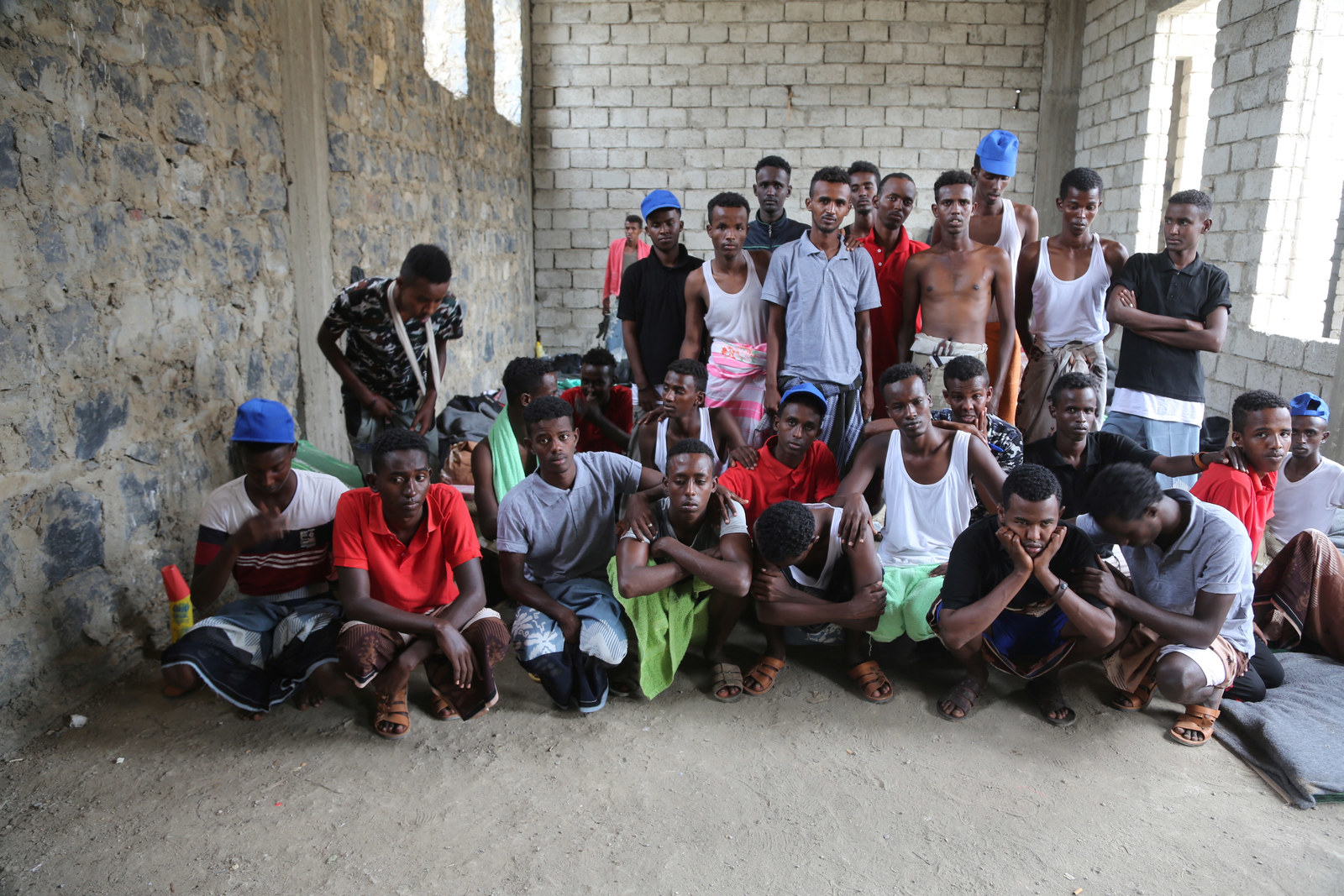
“A large number of civilians”
On the morning of March 17, 2017, news reports of a massacre began emerging after the survivors docked at the port of Hodeidah in Yemen — with 42 dead bodies in the hull of their ship. The unarmed Somali migrants were headed across the Red Sea Straits toward Eritrea, survivors said, when their boat came under withering machine gun fire from a helicopter. UN investigators later said that “those alive hid themselves beneath the bodies of the dead and remained motionless for about 30 minutes to avoid further attack.”
By April, Human Rights Watch announced that the helicopter attack had likely been a war crime. Suspicion fell upon the UAE, and Human Rights Watch sent a letter to the country, demanding that it disclose more about its role.
A UN panel examined the incident and just this January reported that a military helicopter appeared to have committed the massacre. It “fired on the boat for five minutes and then circled the boat and fired again from another direction.”
"Those alive hid themselves beneath the bodies of the dead."
According to the UN, neither the UAE, its coalition partner Saudi Arabia, or a US-led maritime force in the region responded to its requests for information. (The US Navy Central Command in February told BuzzFeed News that it didn’t receive the letters requesting help until now. It said it would send a belated response to the UN.)
Still, the UN experts noted that the UAE, in a state-run news report, admitted it had forces in the vicinity, and, significantly, that its forces saw that the boat “was carrying a large number of civilians” and was “non-military.” The state UAE news service said its forces had not fired, however, and denied involvement. Instead, the UAE suggested that the atrocity had been committed by the Houthi rebels. Toumajan denied that the UAE had any role. “Your premise that UAE had anything to do with the March 2017 event is incorrect,” he wrote in one email. In another email he added that “the UAE has issued a statement that UAE had nothing to do with the March incident you have referenced.”
The UN investigators said Houthi rebels couldn’t have launched the attack because they don’t have helicopters outfitted with the machine gun that was used. The UAE is one of the combatants that does. “They had the means, motive, and opportunity,” said one human rights official who declined to speak on the record.
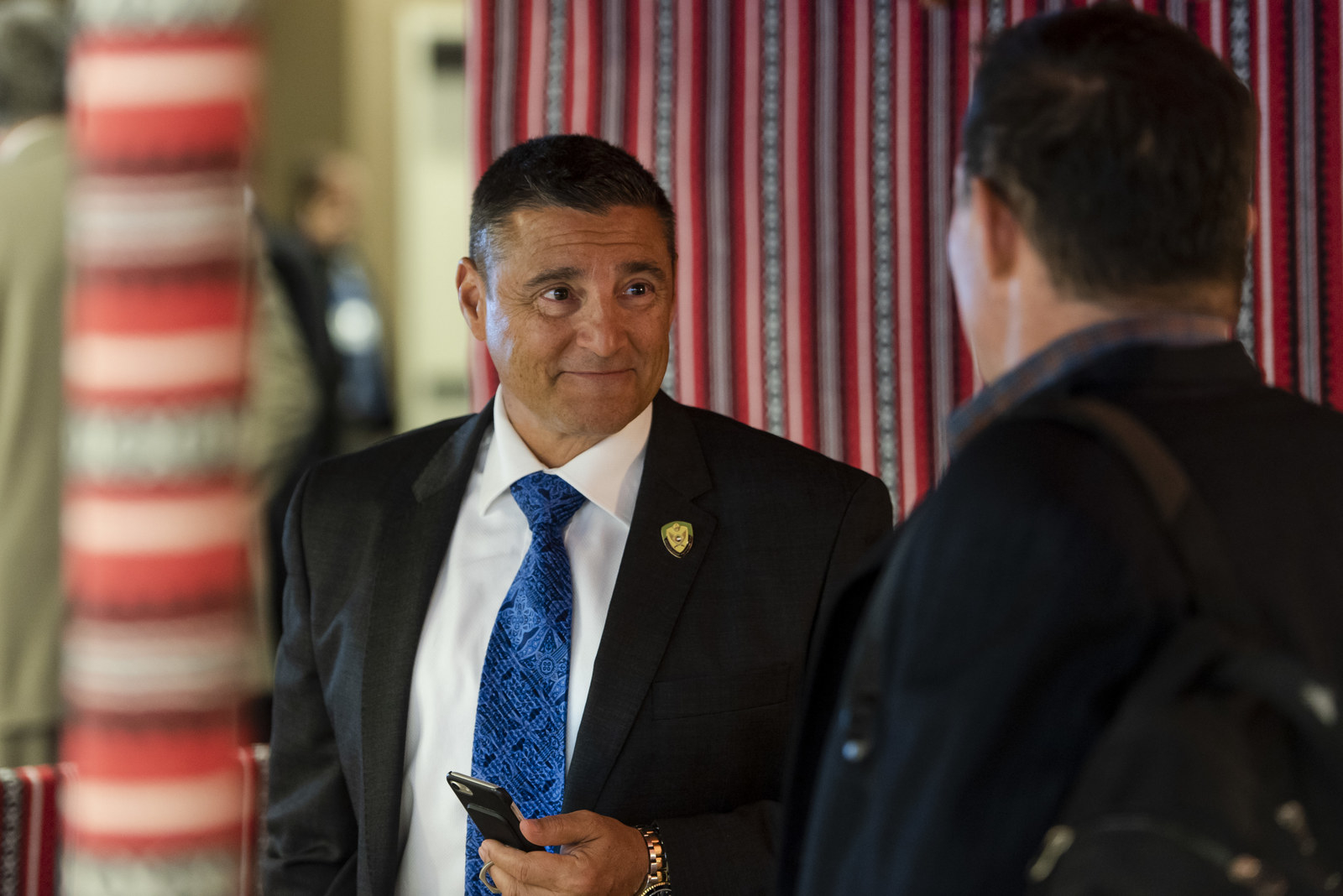
Night Stalkers and breast enhancements
Born in 1965 in New Hampshire, Toumajan went to high school at Hargrave Military Academy in Chatham, Virginia, according to his UAE biography and his Facebook page. Hargrave bills itself as a “Christian-based” school.
In 1986, Toumajan’s military records show he went through the US Army’s officer training and soon became a helicopter pilot. He fought in Iraq in the first Gulf War, got sent to Saudi Arabia, and served in various spots, gradually earning promotions.
In the 1990s he was attached to the elite 160th Special Operations Aviation Regiment, which calls itself the “Night Stalkers,” and handles sensitive and covert missions. In 1997, records show, he was awarded the Joint Service Achievement Medal, as a captain, though — unsurprisingly, given the secretive nature of his assignments — there is no indication what the medal was for.
The same month, he incorporated a for-profit company in Maryville, Tennessee.
The name of the company was Breast Wishes, Inc, though it soon changed to Naturally Yours, Inc. It was a mail-order business, according to Christina Self, who said she was its only employee, and Toumajan ran it out of a rented office, meeting with her once a week. The product it sold “was a natural supplement for enhancement,” she said in a brief phone interview. “Breast enhancements.”
“He was a great boss.”
“There’s no clinical evidence that herbal supplements can increase breast size,” says Adriane Fugh-Berman, a professor of pharmacology and physiology at Georgetown University Medical Center. But according to Self, “it did work!” She added: “for some people.”
Records filed with the state of Tennessee show sales of $163,619 for 1998, with $27,004 spent on radio advertisements. “He was a great boss,” Self said. “He did well.”
Military records show that Tourmajan was deployed to South Korea in 1999, when the company was winding down. In an email to BuzzFeed News, Toumajan wrote, “Not sure why it’s relevant but approximately 20 years ago I was a distributor for a vitamin supplement business.“
In March 2003, as the Iraq War was launched, Toumajan got married in Arkansas, but he had little time for a home life. His military records show that he won a Bronze Star for his work with “Joint Task Force 20” in Iraq. In Afghanistan, he worked on an operation called “Winter Strike,” which, Gen. McChrystal has written, was an effort to launch commandos into the mountainous provinces of Kunar and Nuristan.
And then in 2007, having fulfilled 20 years in the service and now being eligible for a full pension, he received the Legion of Merit and retired as a lieutenant colonel.
It was soon after this that he moved to the UAE with his wife and child.
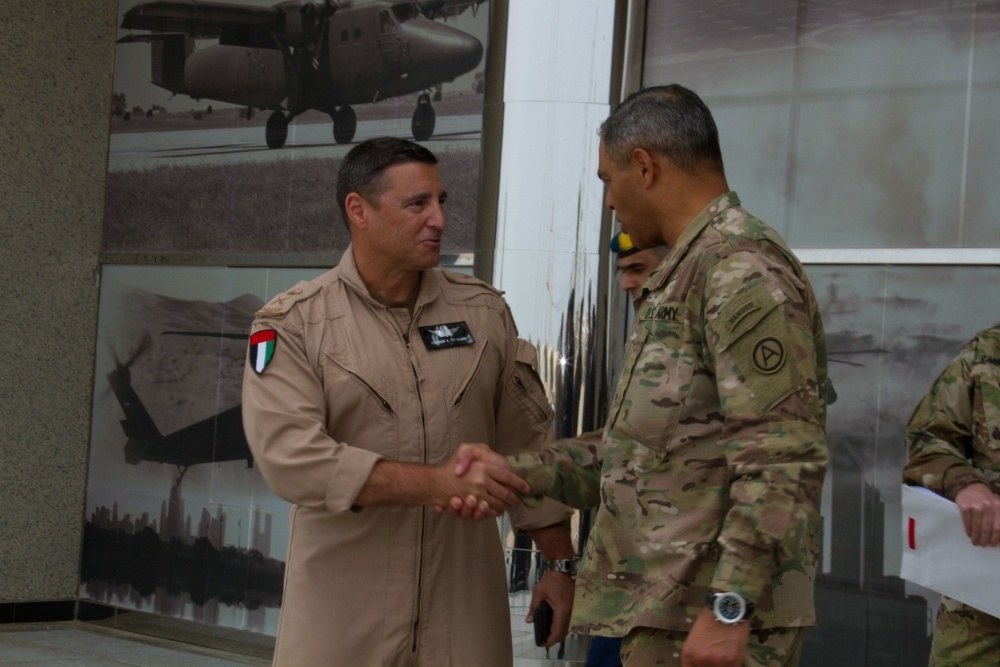
“Little Napoleon”
He started there, according to three people who worked with him, as a colonel for the UAE’s armed forces. Soon, those three sources said, concerns arose about whether he had the proper authorization from the US State Department, which regulates military contractors.
The three sources said that Toumajan was paid by a UAE company but, to comply with US regulations, was “seconded” in 2011 or 2012 to Knowledge International, the Virginia-based company whose advisory board was top-heavy with high-powered, retired US generals.
A licensing document, obtained by BuzzFeed News, indicates that Toumajan was approved by the State Department to be a “Chief Aviation Adviser.” He was authorized to “directly support the UAE Deputy Supreme Commander, his staff and all essential and nonessential personnel and systems related to the Joint Aviation Command.”
It is surprisingly easy to serve in foreign militaries or work as mercenaries in private armies.
Although approved as an adviser, he referred to himself in public as a senior Emirati officer. In 2011, on a contracting memo obtained by BuzzFeed News, he signed his name as “Staff Brigadier General (Pilot) PGA Group 18 Commander.” (Group 18 was the Special Operations helicopter unit of the Presidential Guard that sources said later merged with another unit called Group 10 to form the Joint Aviation Command.) Even his business card identified him as a UAE brigadier general.
The managing director of Knowledge International then was retired US Air Force colonel Daniel Monahan, an expert in compliance with US regulations covering military contractors. But, in an email to BuzzFeed News, he wrote:
“I never felt confident Steve Toumajan supported the role of my company to provide management and oversight. Since we were not provided the access and control of the US persons in the JAC and elsewhere that I felt was necessary to ensure full compliance to the conditions agreed to with the Department of State, I resigned."
Got a tip? You can email tips@buzzfeed.com. To learn how to reach us securely, go to tips.buzzfeed.com.
Officials at Knowledge International did not return phone calls. When a BuzzFeed News reporter visited the company’s office in Virginia to ask about Monahan’s claims, a man said, “I know who you are,” and ushered him out of the office, declining to take questions.
When private US military contractors render services to foreign armies, the State Department must sign off on what they propose to do, usually training, advising, maintaining weapons, or other support functions. The State Department has never approved any contractors “to provide direct command functions, combat troops, combatants, or mercenaries,” a spokesperson said. Arms exports consultants say this prohibition is a matter of policy and custom — no law explicitly bars it.
For Americans who don’t call themselves contractors, it is surprisingly easy to serve in foreign militaries or work as mercenaries in private armies. If a foreign country is at war with the US, then joining its military is treason. But if a country is not engaged in hostilities with the US, the consequences for an American who joins its military are minor to none. Former officers can lose their pension — but only for the time they serve in a foreign military, which might pay them far more that they stand to lose from forfeiting their pension. Americans who join another country’s military can lose their US citizenship, but only if they no longer wish to retain it anyway.
In 1993 there was a scandal when Aleksander Einseln, who retired as a US Army colonel, was appointed commander in chief of the armed forces of Estonia. The Pentagon threatened to stop his pension and the State Department threatened him with the loss of citizenship, but the matter was resolved in his favor.
“He sells himself as the white ‘bwana’ who can lead them to the promised land.”
As for Toumajan, “I know he’s extraordinarily influential,” said one American who does business in the UAE and who has worked with him. “You don’t do anything in aviation over there without him popping into meetings. He has the run of the place.”
Toumajan’s role is “bizarre,” said a former US military officer who met him in UAE and worked with him. “We would call him ‘Little Napoleon,’” he added.
“He sells himself as the white ‘bwana’ who can lead them to the promised land,” said another former colleague of his.
Toumajan and the Joint Aviation Command have gone on a shopping spree. Four sources familiar with his activities said he helped the UAE buy special US-made crop dusters that were reconfigured as warplanes. Toumajan emailed BuzzFeed News that the plane is “not a Joint Aviation Command program.”
The country has also bought French Puma helicopters and armed refitted US Bell utility helicopters.
And all along, Toumajan has claimed to be a UAE general. When Lt. Gen. Michael X. Garrett, a member of the US Army’s Central Command, visited the UAE in 2016, he was photographed shaking hands with Toumajan. An article posted on the US Army website says that the American general “spent time with Emirati Maj. Gen. Stephen Toumajan, the commander of the Joint Aviation Command at the UAE command headquarters.”
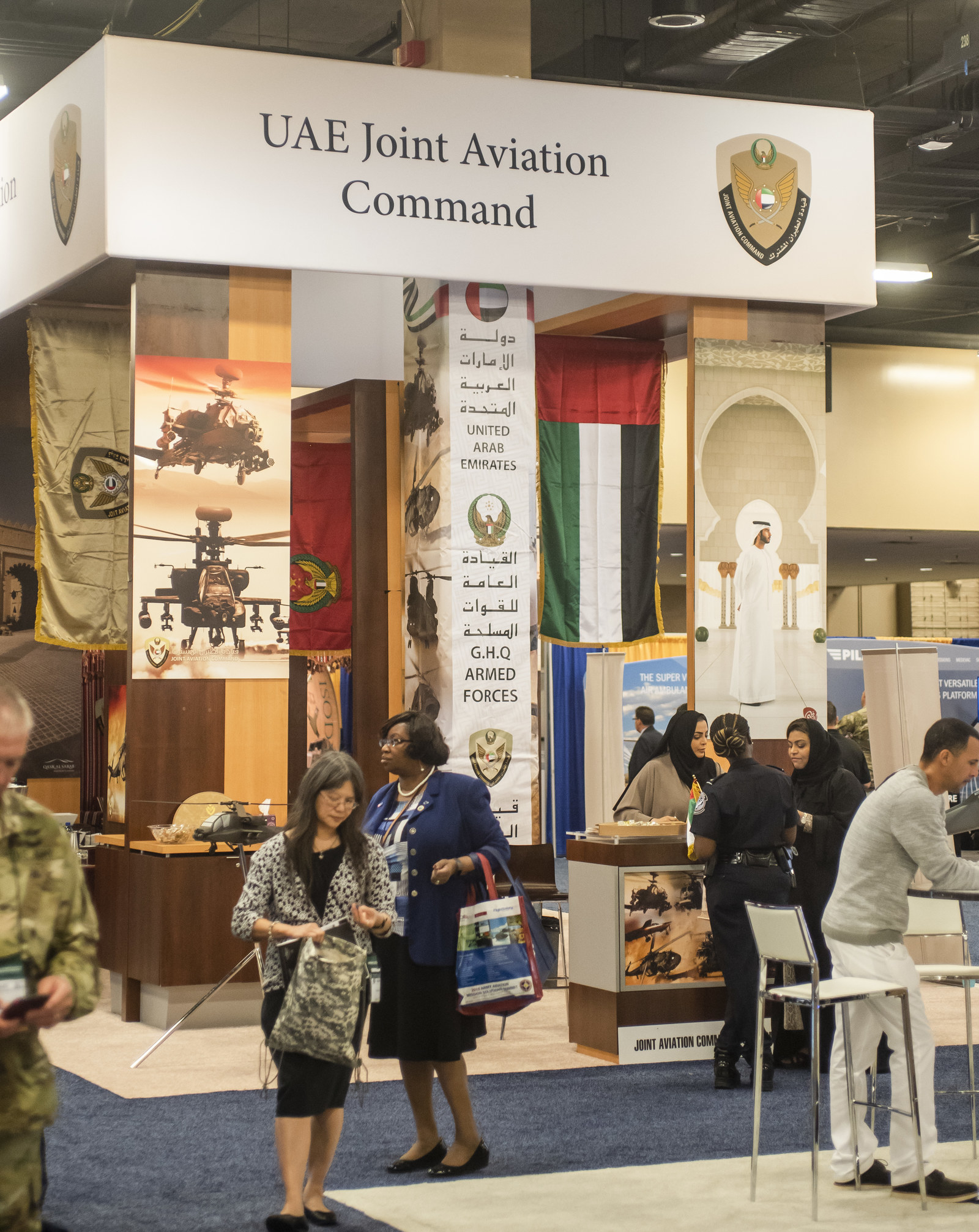
Relaxing in a Bedouin tent
Last month, in the sprawling Gaylord Opryland convention center in Nashville, the elite of the US Army’s helicopter assault divisions gathered with hundreds of defense contractors. In an exhibit hall, companies such as Lockheed Martin and Textron showcased missiles, while Nobles and Orbital ATK showed off massive machine guns for helicopter door gunners.
The UAE’s Joint Aviation Command, always recruiting pilots and trainers and searching for equipment, had a large booth as well. Bearded Emirati soldiers in fatigues joined with some women in black shawls.
Inside the Bedouin-style tent were cushioned sofas and a massive brass teapot.
Behind the booth was a Bedouin-style tent of dark weave, with cushioned sofas and a massive brass teapot.
Sitting comfortably was Stephen Toumajan, presiding over the booth and looking in charge. He wore a white shirt, a blue paisley tie, and a well-fitted charcoal gray suit with a lapel pin that appeared to be the logo of the UAE Joint Aviation Command.
When approached by a BuzzFeed News reporter, he stood and shook hands. He understood, he said, that BuzzFeed was doing a story on him as an American working as a UAE general, but he insisted he did not have time to talk. “I’m all booked up,” he said. Would Toumajan talk later? He demurred, and then gestured to one of the Emirati soldiers to usher away the reporter and photographer.
Soon a coworker apologetically insisted that BuzzFeed News leave the Joint Aviation Command exhibition booth.
Toumajan sat back down, his back straight, on his expansive couch in the Bedouin tent. ●
